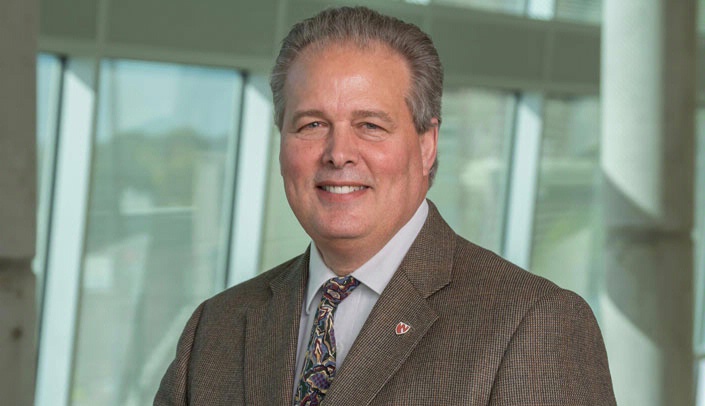Looking for ways to improve the work environment for individuals with developmental disabilities was the focus of the June meeting of the Nebraska Developmental Disabilities Network Tri-Board.
Michael Gamel-McCormick, associate executive director of the Association of University Centers on Disabilities for research and policy, was the keynote speaker. He is an author of the federal Workforce Innovation and Opportunity Act (WIOA)
The Tri-Board features the University Center of Excellence for Developmental Disabilities (UCEDD) Community Advisory Board, the board of the Nebraska Developmental Disabilities Council and the board of Disability Rights Nebraska. The three boards make up the Developmental Disabilities Network of the state of Nebraska.
“This is the fifth annual meeting of the boards and an excellent opportunity for community members in support of the state developmental disabilities network to come together, learn, discuss and get involved,” said Wayne Stuberg, associate director of MMI. “This year’s topic on employment was timely with the federal regulations about to be published.”
Topics discussed during the meeting included employment and the Workforce Innovation and Opportunity Act (WIOA); an overview of Nebraska’s vocational rehabilitation programs for individuals with intellectual and developmental disabilities, as well as a career pathway advancement program; a career access initiative; and a self-advocate panel on employment.
Bryon McDonald, program director of the World Institute on Disability, spoke on disability benefits and showed an online resource that could be used to calculate how employment interacts with such benefits as Medicaid, child care expenditures and other supports. McDonald also spoke about a national initiative to reform Social Security to remove barriers to a successful work life for all people with disabilities.
Janet Drudik from Nebraska Vocational Rehabilitation and a panel of individuals from People First of Nebraska also presented to add a local perspective on the issue of employment in Nebraska for individuals with special needs.
The Munroe-Meyer Institute’s Sarah Swanson, who attended as a member of the UCEDD, said changes at the federal and state level, including new rules involving home and community service and WIOA, drove the meeting’s focus on employment.
“WIOA specifically defines competitive integrated employment and prioritizes helping youth with significant disabilities transition from school to employment,” she said. “Nebraska has to innovate what it’s doing.”
New rules from the Centers for Medicare and Medicaid Services won’t allow for non-inclusive settings, such as sheltered workshops – often a setting where people with disabilities work for sub-minimum wages or a piecemeal rate.
“The state has to look at new, innovative ways to prioritize this,” she said.

One way to increase work readiness for even the most in need is to redesign 'day treatment programs' expanding their role in providing foundational work related behavior and other work oriented activities that dovetail into successful participation in creative, real supports and training from Vocational Rehabilitation. Collaborative design of programing allows even the most involved individuals access to an employment pathway.